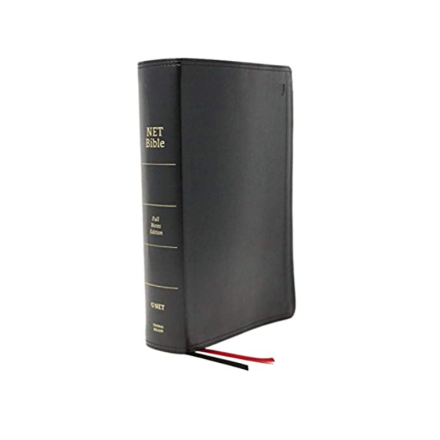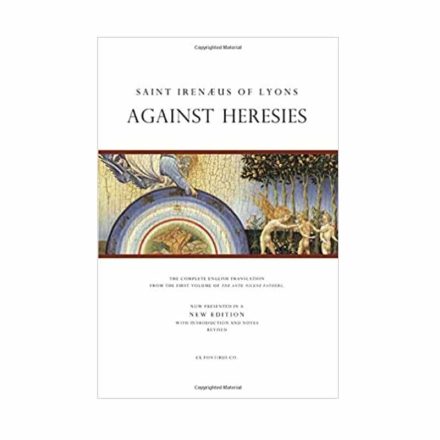Podcast (bible-study): Play in new window | Download | Embed
Subscribe: Apple Podcasts | Google Podcasts | Spotify | Amazon Music | Android | Pandora | iHeartRadio | Podchaser | Email | Deezer | RSS | More
Are We Seeking God’s Will or Our Will?

Job 40
And the Lord said to Job:
2 “Shall a faultfinder contend with the Almighty?
He who argues with God, let him answer it.”
Another way to put this verse is “Shall the one who contends with the Almighty correct God?” My thoughts on this are there is a difference between contending with God for an answer and finding fault or saying that what is happening shouldn’t be. We may not understand the “why,” but what we can know is that God is good and regardless of what is going on, regardless of what we see in front of us, we can trust him.
Having said that, we have to recognize that God’s good plan for us is in his will for us, not ours. If we go around making poor choices, we can’t blame him for the outcomes we get. This not only includes things that are in violation of his written word, but not seeking out God’s will for our situation. For example, it wasn’t until after the Israelites experienced a humiliating defeat when they first tried to take the city of Ai that Joshua sought God for direction in that particular situation.
They had been told to take the land, which Joshua was doing, but Joshua wasn’t continually seeking guidance as they went. If Joshua had consulted God before they attacked Ai, God would have told them that there was sin in the camp that would bring destruction on the community as a whole. How often do we do the same? We go along, thinking we’re doing the right thing without checking in with God, and then when we get ourselves into a mess … who do we blame? Do we take responsibility for our own actions? Not usually … usually we blame God.
Throughout the conquering of the promised land, Joshua often had missteps. He made alliances with the Gibeonites because he didn’t consult with God before he made a treaty with them. The Israelites lost the first time they tried to take the city of Ai. Joshua made mistakes, but he knew the remedy. He didn’t blame God for the loss. He didn’t doubt that God was faithful. Joshua continued to trust that God would do what he said. He confessed that he was wrong and sought God’s guidance for a way out.
That Job experienced difficulties and overwhelming disaster was not because of wrong actions on his part. But unlike Joshua who had been delivered from the hand of the most powerful nation in the known world, walked through miracles, been sustained by manna for forty years in the wilderness, who had heard God’s voice and experienced his presence, Job had lived his life in comfortable circumstances. Job had always feared God, but it was through his trials that he really got to know God.
It was the mercy of God that stopped Job from falling into the trap of self-righteousness. Jacob contended with God until he was blessed. That is our example, like Jacob and the persistent widow, we continue to contend in prayer and say, “I’m not going to let you go until you bless me.” We continue to contend because we know God is good and will be faithful to keep his word. We may not understand our circumstances, but we trust God to lead us out of it.
3 Then Job answered the Lord and said:
4 “Behold, I am of small account; what shall I answer you?
I lay my hand on my mouth.
5 I have spoken once, and I will not answer;
twice, but I will proceed no further.”
Then Job responds to God and what does he say? He says, “I don’t know anything and I’m not going to say anything else.” Job already presented his case to God in chapters 26-31, he isn’t going any farther.
6 Then the Lord answered Job out of the whirlwind and said:
7 “Dress for action like a man;
I will question you, and you make it known to me.
8 Will you even put me in the wrong?|
Will you condemn me that you may be in the right?
“Will you condemn me that you may be in the right?” In other words, God is asking Job, “Are you willing to be wrong?” Job has considered himself a God-fearing and righteous person, but when it comes down to it, does he value his own reputation above God’s? Is he willing to admit that he is wrong, or more precisely in the case of Job, that what has come about in his life are in line with the order of God’s laws, and therefore his justice and righteousness, even if Job doesn’t understand the reasons why.
Going back to the example of Joshua, the defeat of the Israelite army was due to the wrongdoing of one person. There were serious consequences for not only for the man who did the offense, but also for his family. But it wasn’t only about the man’s family, he brought condemnation on the whole of Israel. Israel would not succeed until that sin was atoned for. Today, the blood of Jesus atones for our sin, but it must be confessed.
When Joshua sought God for the reason, God told him that someone had offended. Joshua was in authority over Israel, he sought out the person and held them accountable for the wrongdoing. There are a couple of things to note about this. First, God didn’t give Joshua the name, Joshua had to seek out the offender. Second, Joshua had both the authority and responsibility for the welfare of Israel. The Holy Spirit isn’t a gossip. If you receive a revelation about a situation, it is because you have the authority and responsibility to do something about it. God doesn’t give Job a specific answer about why Job experienced what he did. As I’ve mentioned, I think the details and timing given in the first two chapters indicate that Job’s children opened themselves up to judgment during the feast, and that judgment came before Job could make a sacrifice for atonement. Job’s children experienced the judgment for their actions and the rest of what happened to Job was collateral damage. If there was something Job needed to confess, God would have told him.
The essence of God’s being is justice and the world that he created runs upon it. He cannot be other than he is. All of us do things that violate God’s justice and order, and we can only call upon him for mercy. Jesus has told us that in order to receive mercy, we must also be willing to give it.
But let’s continue with Job:
9 Have you an arm like God,
and can you thunder with a voice like his?10 “Adorn yourself with majesty and dignity;
clothe yourself with glory and splendor.
11 Pour out the overflowings of your anger,
and look on everyone who is proud and abase him.12 Look on everyone who is proud and bring him low
and tread down the wicked where they stand.
13 Hide them all in the dust together;
bind their faces in the world below.14 Then will I also acknowledge to you
that your own right hand can save you.
fear not, for I am with you; be not dismayed, for I am your God; I will strengthen you, I will help you, I will uphold you with my righteous right hand.[1]
God saves us through his “victorious right hand,” his acting power or agent, which is Jesus, the Word. I have a review on my website about The Two Powers in Heaven by Alan Segal that talks about the idea in Judaism during the Second Temple period about “two powers” or “two Yahweh’s” and how that connects with the idea of the Logos in philosophical thought during that time.
God saves with his “right hand.” God is asking Job if Job can save himself by his own power or “right hand.”
15 “Behold, Behemoth,
which I made as I made you;
he eats grass like an ox.
16 Behold, his strength in his loins,
and his power in the muscles of his belly.17 He makes his tail stiff like a cedar;
the sinews of his thighs are knit together.
18 His bones are tubes of bronze,
his limbs like bars of iron.19 “He is the first of the works of God;
let him who made him bring near his sword!
20 For the mountains yield food for him
where all the wild beasts play.21 Under the lotus plants he lies,
in the shelter of the reeds and in the marsh.
22 For his shade the lotus trees cover him;
the willows of the brook surround him.23 Behold, if the river is turbulent he is not frightened;
he is confident though Jordan rushes against his mouth.
24 Can one take him by his eyes,
or pierce his nose with a snare?
There is a lot of debate about what animal is referred to here in Job by “Behemoth.” It’s very likely an animal that is now extinct. This is from Encyclopedia Britannica:
Behemoth, in the Old Testament, a powerful, grass-eating animal whose “bones are tubes of bronze, his limbs like bars of iron” (Job 40:18). Among various Jewish legends, one relates that the righteous will witness a spectacular battle between Behemoth and Leviathan in the messianic era and later feast upon their flesh. Some sources identify Behemoth, who dwells in the marsh and is not frightened by the turbulent river Jordan, as a hippopotamus and Leviathan as a crocodile, whale, or snake.[2]
Killing a crocodile isn’t really that spectacular of a feat and it also doesn’t fit the understanding of Leviathan historically, and the description in Job doesn’t describe what we know as a hippopotamus. I think they are extinct creatures and, who knows, maybe there will be a real life edition of jurassic Park where they are regrown through DNA, proving those Jewish legends true.
Regardless, the point of the passage is Behemoth is a big animal that can stand its ground even in the middle of a raging flood.
Now God continues with the description of another of his creatures.
Job 41
“Can you draw out Leviathan with a fishhook
or press down his tongue with a cord?
2 Can you put a rope in his nose
or pierce his jaw with a hook?3 Will he make many pleas to you?
Will he speak to you soft words?
4 Will he make a covenant with you
to take him for your servant forever?5 Will you play with him as with a bird,
or will you put him on a leash for your girls?
6 Will traders bargain over him?
Will they divide him up among the merchants?
7 Can you fill his skin with harpoons
or his head with fishing spears?8 Lay your hands on him;
remember the battle—you will not do it again!
9 Behold, the hope of a man is false;
he is laid low even at the sight of him.10 No one is so fierce that he dares to stir him up.
Who then is he who can stand before me?
11 Who has first given to me, that I should repay him?
Whatever is under the whole heaven is mine.12 “I will not keep silence concerning his limbs,
or his mighty strength, or his goodly frame.
13 Who can strip off his outer garment?
Who would come near him with a bridle?14 Who can open the doors of his face?
Around his teeth is terror.
15 His back is made of rows of shields,
shut up closely as with a seal.16 One is so near to another
that no air can come between them.
17 They are joined one to another;
they clasp each other and cannot be separated.18 His sneezings flash forth light,
and his eyes are like the eyelids of the dawn.
19 Out of his mouth go flaming torches;
sparks of fire leap forth.20 Out of his nostrils comes forth smoke,
as from a boiling pot and burning rushes.
21 His breath kindles coals,
and a flame comes forth from his mouth.22 In his neck abides strength,
and terror dances before him.
23 The folds of his flesh stick together,
firmly cast on him and immovable.
24 His heart is hard as a stone,
hard as the lower millstone.25 When he raises himself up, the mighty are afraid;
at the crashing they are beside themselves.
26 Though the sword reaches him, it does not avail,
nor the spear, the dart, or the javelin.27 He counts iron as straw,
and bronze as rotten wood.
28 The arrow cannot make him flee;
for him, sling stones are turned to stubble.29 Clubs are counted as stubble;
he laughs at the rattle of javelins.
30 His underparts are like sharp potsherds;
he spreads himself like a threshing sledge on the mire.31 He makes the deep boil like a pot;
he makes the sea like a pot of ointment.
32 Behind him he leaves a shining wake;
one would think the deep to be white-haired.33 On earth there is not his like,
a creature without fear.
34 He sees everything that is high;
he is king over all the sons of pride.”
Leviathan is another animal that we aren’t familiar with today, but in the time of Job it seems Leviathan was a terror that no one could stand against. Leviathan is said to be “kind over all the sons of pride.” About Leviathan, Encyclopedia Britannica states:
Leviathan, Hebrew Livyatan, in Jewish mythology, a primordial sea serpent. Its source is in prebiblical Mesopotamian myth, especially that of the sea monster in the Ugaritic myth of Baal (see Yamm). In the Old Testament, Leviathan appears in Psalms 74:14 as a multiheaded sea serpent that is killed by God and given as food to the Hebrews in the wilderness. In Isaiah 27:1, Leviathan is a serpent and a symbol of Israel’s enemies, who will be slain by God. In Job 41, it is a sea monster and a symbol of God’s power of creation.[3]
The point of God’s response to Job is that there are all these things in the world around him that Job cannot explain or control; so how can Job even begin to understand the spiritual forces that govern the world.
And is it really even about an answer?
I saw a short video where someone was talking about asking questions. In it, she pointed out that when it comes to knowledge, and specifically science, we only know a miniscule fragment of what there is to know. If we can’t be okay with that, then in reality, we aren’t truly seeking answers.
In the case of Job, was it really about the answer to “why” all those things happened, or was it more about Job wanting to be right? This is what God is asking him.
As we’ve discussed, between Job and his friends, Job was the only one who wanted to seek out God. But between Job and Elihu, Elihu was the one defending God’s name rather than his own.
Do you really want to know why or do you just want to be right?
Put another way, are you willing to be wrong? When fighting a spiritual battle, we have to be willing to humble ourself before God in order to stand firm. We saw in the first chapters that the chaos that entered Job’s life was cause by spiritual forces he wasn’t aware of. Not only did Job need to begin in humility before God, he needed to continue in that way.
We have to be willing to accept that sometimes we aren’t going to know the reason why a certain thing happens, but regardless of what happens, God is good.
This Bible study is part of A Study of Job (2021)
Endnotes
- [1] Isaiah 41:10 ESV.
- [2] “Behemoth | Old Testament | Britannica,” accessed December 17, 2021, https://www.britannica.com/topic/Behemoth.
- [3] “Leviathan | Middle Eastern Mythology | Britannica,” accessed December 17, 2021, https://www.britannica.com/topic/Leviathan-Middle-Eastern-mythology.




